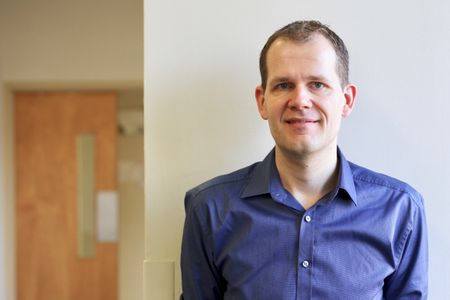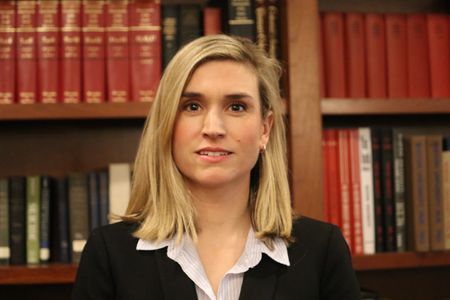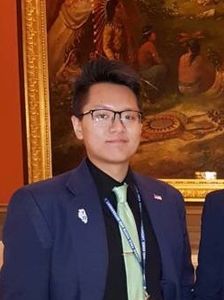Global Impact Research Fund Supports Projects for a Better Future
Banner photo by The New York Public Library on Unsplash

When R. Sam Deese and Michael Holm organized a conference in October 2020, they called it “How Democracy Survives: The Crises of the Nation State.”
The title quickly became controversial. People complained they were being sensationalist, that democracy wasn’t in peril.
“The original name was going to be ‘Democracy Beyond the Nation State.’ But as 2020 rolled on, with more and more dramatic catastrophes, it seemed more appropriate to ask how does democracy survive,” says Deese. “You can’t really extend democracy beyond the nation-state if inside nation-states like the United States, it actually dies. And it’s not an overstatement to say that President [Donald] Trump sought to overturn a democratic election with mob violence. Although some people thought we were being dramatic, I think the events of January 2021 are evidence that we weren’t.”
The three-day virtual conference, which Deese and Holm organized in conjunction with CGS and the Frederick S. Pardee Center for the Study of the Longer-Range Future, featured speakers from around the world who pondered how democratic institutions can weather forces that are destabilizing democracy, such as religious conflict, human rights abuses, and the increase in economic inequality.
Now, Deese and Holm, both senior lecturers in social sciences, are continuing to explore the question in a new project that combines a podcast series and a forthcoming book, How Democracy Survives: Global Challenges in the Anthropocene (Routledge, 2022). The project is supported by CGS’ Global Impact Research Fund, established by Gary Kraut (’64, COM’66) in 2018, which provides two $12,500 awards each year through 2023 to faculty members whose research has the potential to impact society in the near future.

The book will feature 15 contributors, including Deese and Holm; it will be divided into three sections that look at democracy today, its past, and its future. “One of the animating ideas of our project is the sense that, because so many of the problems that confront democracies around the world are transnational—like mass migrations due to climate change and, of course, pandemics—democratic structures have to extend beyond national governments,” says Deese. He and Holm are interested in efforts to make the United Nations more transparent and accountable, particularly the campaign to create a UN Parliamentary Assembly, which aims to give citizens of UN countries a more direct voice in global policy decisions. They’re also interested in movements to create a federation of democracies. The book, they say, advocates for world federalism, taking the stance that if democratic societies work together to strengthen democratic institutions around the globe, they will also strengthen democracy within their own borders.
Holm notes that world federalism has its skeptics, who argue that it is unattainable given the amount of coordination amongst countries it would take, or that it could open up the potential for tyranny. But Holm disagrees. “We’re a really small group of people who actually think this is possible.”
For their podcast, Deese and Holm have teamed up with students involved with The Politica, a global affairs student organization recently established by two CGS students. The students have assisted with recording the podcast and researching the episodes’ themes and guests. Some have even conducted interviews. “We really want to have active student involvement in this,” says Holm. “It’s been helpful to have input from young people who are interested in political and social change. We might not be conscious of the same issues and may not ask the same questions.”
The podcast enables Deese and Holm to expand on their conversations with some of the 2020 conference speakers. They are also recording episodes with contributors to their book, including Malka Older, a science fiction author and an international aid worker, who is writing a chapter about what disaster response can teach us about democracy today. They’ve been working on the podcast throughout the spring and will continue into the fall, and have started posting episodes on The Politica’s website and streaming platforms like Spotify.
“We’re extremely grateful for the Global Impact Research Fund, Dean [Natalie] McKnight, and the [CGS] Center for Interdisciplinary Teaching & Learning. They’ve been unbelievably helpful,” says Deese. “I think there’s something about the nonspecialist element of CGS that has made this project possible. It’s second nature for people here to think across disciplines.”
Studying Service Learning
The Global Impact Research Fund has granted awards to faculty studying a range of subjects, including Peter Busher, a professor emeritus of natural sciences and mathematics, who examined the evolution of beaver foraging behavior before retiring in 2020, and Sandy Buerger, a senior lecturer in natural sciences and mathematics, who used the award to study historical cures.
Kraut says he values the interdisciplinary, liberal arts education he received at CGS and wants to support the diverse research that is at its backbone. “It’s important for young people to experience a wide variety of paths to learning and life,” he says. “Research creates knowledge. Knowledge creates opportunity and a better world.”

Stephanie Byttebier is this year’s second Global Impact Research Fund award recipient. Byttebier, a senior lecturer in rhetoric, is collaborating with Leo Chen (’21) to learn if partnerships between communities and universities truly are mutually beneficial.
Byttebier’s own teaching methods inspired the project. For the last five years, she’s been partnering with the nonprofit the Boston Debate League (BDL), which organizes debate tournaments for Boston Public Schools (BPS) students. She sends her students to volunteer as judges at BDL tournaments during the unit she teaches on ancient rhetoric, to show them how the material they’re learning—like the birth of rhetoric and the importance of speaking skills in a democracy—applies in the real world.
Byttebier also educates her students about the public school system in Boston before they volunteer. “Boston’s public schools are chronically underfunded, and there are these huge gaps between the exam schools and all the other schools. I show my students a lengthy presentation on this situation so they understand why they’re going to support this very crucial learning experience for BPS students.”
Byttebier now wants to examine the impact of her BDL service learning partnership. “The assumption that just because you do service learning, it makes a difference, is kind of naïve,” she says. “So I want to take this moment of introspection to make sure that the work we’re doing is actually making a difference and to critically reflect on it.”
The project is still in the planning stage, with Byttebier and Chen waiting to hear back from BU’s Institutional Review Board and Boston Public Schools on its approval. They hope to begin their research in late August, when BDL holds an intensive summer camp. “Our research will be tricky,” says Byttebier. “It’s not something that you can very easily quantitatively measure.”

Their plan is to survey BPS debaters at tournaments about the quality of volunteering they’re seeing, how they conceptualize the role of a volunteer, and other issues. Then they want to conduct more targeted research using focus groups made up of so-called “super user” debaters, who participate in multiple tournaments. And they also plan to interview professors from neighboring universities who send their students to volunteer with BDL (many law professors, Byttebier says, incorporate this volunteering into their curricula).
“One of the things that we’re trying to find out is whether it makes a difference if professors prepare their students in particular ways to go volunteer—for example, if you give them more information about the population that they’re about to serve or the school system in Boston, like I do, and also if you’re able to tie it into your own curriculum in a meaningful way.” Byttebier and Chen will then match this information with the answers from the debaters themselves and see if it makes any difference in their appreciation of the volunteers.
Chen says he is grateful for the opportunity to work with Byttebier on a project so close to his heart. “As a former inner-city public school student who has grown into a service-learning student, I think it will be striking to study these young debaters and their interaction with volunteers,” he says. “If I could somehow make an impact on future generations of public school students through creating better practices of service learning pedagogy, then I would be beyond satisfied.”
